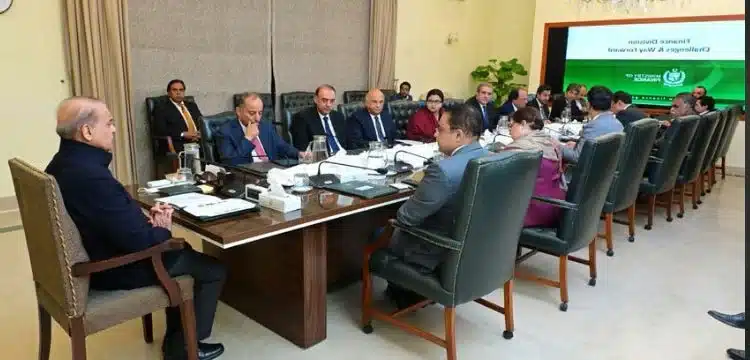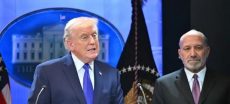[vc_row][vc_column][vc_column_text dp_text_size=”size-4″]Shortly after taking the oath of office on Monday, Prime Minister Shehbaz Sharif promptly instructed the initiation of immediate talks with the International Monetary Fund (IMF) to secure a more substantial and extended bailout through its Extended Fund Facility (EFF) for Pakistan. Leading a comprehensive meeting on economic rehabilitation, the prime minister emphasized the urgency of devising an emergency action plan to address the country’s overall economic challenges, citing it as a top governmental priority.
During the session, the Finance Secretary provided a comprehensive briefing on the nation’s economic status. Notably, Ishaq Dar, a prominent figure in the race for Finance Minister, was absent, while respected banker Mohammad Aurangzeb, a potential candidate, participated.
Read more: IMF Prepared To Collaborate, Spokesperson Confirms
Aurangzeb’s potential appointment as a federal minister faced a hurdle due to his lack of Pakistani citizenship, prompting consideration for the role of special assistant to the PM. The pressing task for the new finance minister revolves around securing an advantageous deal with the IMF under the three-year EFF, considering the conclusion of the current $3 billion Stand-By Arrangement (SBA) by April 12, 2024.
In response to the prime minister’s directives, the Federal Board of Revenue promptly cleared tax refunds amounting to Rs. 65 billion. Shehbaz Sharif emphasized the importance of encouraging taxpayers contributing to export enhancement and economic value addition.
Furthermore, the prime minister mandated the immediate initiation of automation for the FBR and other institutions to enhance transparency. He outlined plans for privatizing loss-making state-owned entities, forming a committee to reduce board members’ privileges in such institutions, and implementing a strategy for smart metering in the power and gas sectors.
Shehbaz Sharif urged banks and financial institutions to develop strategies for promoting small and medium businesses to empower the youth. Additionally, he called for a strategy to streamline the government’s size by merging or closing unnecessary institutions. The Special Investment Facilitation Council (SIFC) was highlighted as a crucial step in ensuring economic stability, with plans to fortify its role further.[/vc_column_text][/vc_column][/vc_row]











